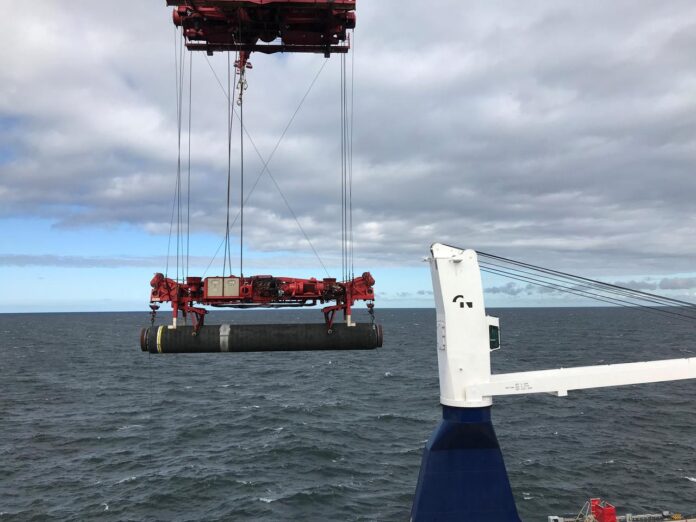By Reuters
As U.S. lawmakers plot to stop one of Moscow’s most important projects in Europe, the Nord Stream 2 pipeline, lobbyists supporting it are busier than ever but disclosing few details of their work, according to government filings and current and former U.S. officials.
The pipeline linking Russian gas fields to Western Europe has become a lightning rod of contention in U.S.-Russia relations.
This is as the Trump administration concerned it would dangerously expanding the region’s energy dependence on Moscow but backers, including in Europe, saying the gas is needed.
U.S. President Donald Trump has already signed a sanctions bill that delayed construction on the $11 billion project, wholly-owned by Russia’s state-run Gazprom and headed by Alexei Miller, a long-time ally of Russian President Vladimir Putin.
But lawmakers fearful the measures are not enough to prevent the pipeline’s completion are contemplating further action.
Nord Stream 2 AG has paid lobbyists at BGR Group, Roberti Global LLC, and Sweeney & Associates a combined $1.69 million during the first half of this year, according to Senate records.
That is more than double the amount during the same period a year ago, and more than all of 2018, the first full year the project lobbied in Washington.
But exactly who the lobbyists meet with is a mystery because they have not registered with the Department of Justice under the Foreign Agent Registration Act (FARA), a law passed in 1938 to limit the influence of Nazi Germany and Communist Russia in U.S. politics.
Under FARA, lobbyists must disclose every meeting with U.S. officials, along with the materials they distribute.
Instead, the Nord Stream 2 lobbyists have registered under the 1995 Lobbying Disclosure Act, a law that amended FARA by allowing lobbyists for foreign companies or individuals to report much less information as long as their work is not intended to benefit a foreign government.
Representatives for Nord Stream 2 and the lobbying companies did not respond to requests for comment.
But Nord Stream 2 has characterised itself as a commercial, not political, project.
A senior Trump administration official took issue with that, saying the lobbyists are seeking to further Moscow’s national interests.
“The fact that you’ve got people working for Gazprom, which is essentially the Russian state, you know to manipulate our processes … it’s crazy,’’ the official said, asking not to be named discussing the issue.
Danielle Nichols, a spokesperson for the Department of Justice, which handles FARA registrations, said the department had no comment at this time.
Lobbyists for Nord Stream 2’s foreign opponents, by contrast, have registered under FARA.
Yorktown Solutions LLC, for example, which lobbies for Ukraine’s state-owned Naftogaz and its partner companies against the pipeline, is among them, according to FARA records.
Andriy Kobolyev, Naftogaz’s Chief Executive told Reuters in an email that company representatives travel to Washington about once a month to provide updates on the status of Nord Stream 2 and discuss how to stop the pipeline.
Nord Stream 2 will double the capacity of an existing line to Germany under the Baltic Sea to 110 billion cubic meters of gas per year, enough to supply 26 million households.
It would circumvent U.S. ally Ukraine, depriving it of potentially billions of dollars in transit fees, and compete with U.S. efforts to sell liquefied natural gas into Europe.
U.S. senators Ted Cruz, a Republican, and Jeanne Shaheen, a Democrat, are among the pipeline’s biggest opponents in Congress.
Both are pushing new sanctions measures that would target insurers of Gazprom vessels that would lay the last 100 miles (160 km) of pipe in Danish waters, where unexploded bombs from World War II lie in the pipeline’s path.
Neither senator responded to a request for comment.
Nord Stream 2 backers say Germany and other European countries need Russian gas and Germany has threatened retaliatory action if U.S. sanctions stop the project.
Austria’s OMV, German firms Uniper and Wintershall, Royal Dutch Shell and France’s Engie provide half the project’s long-term financing.




